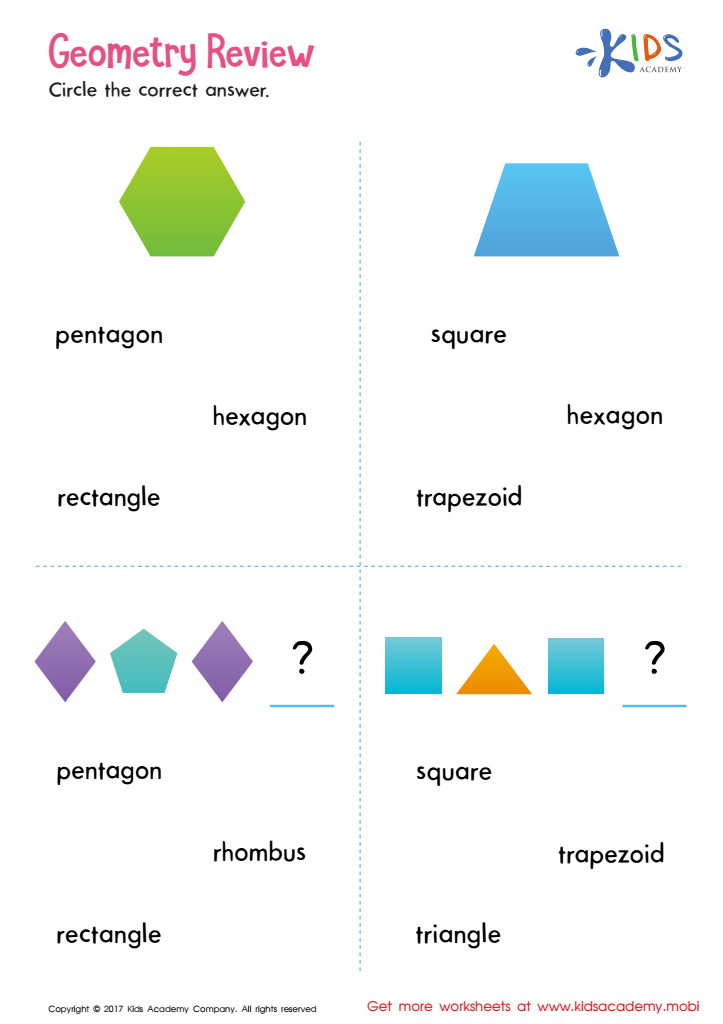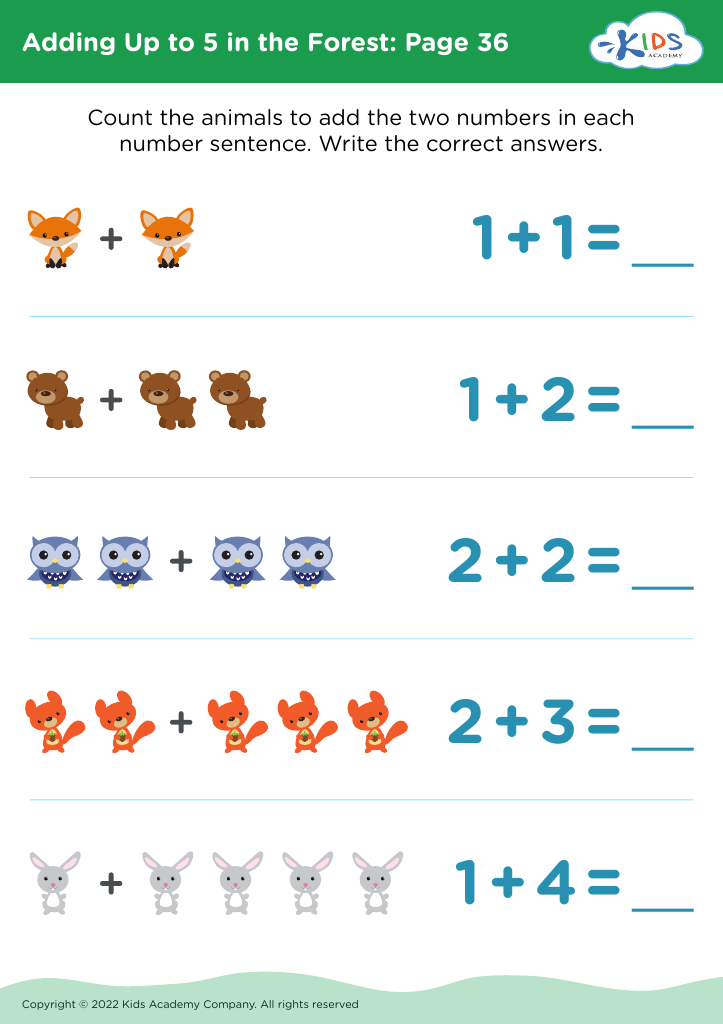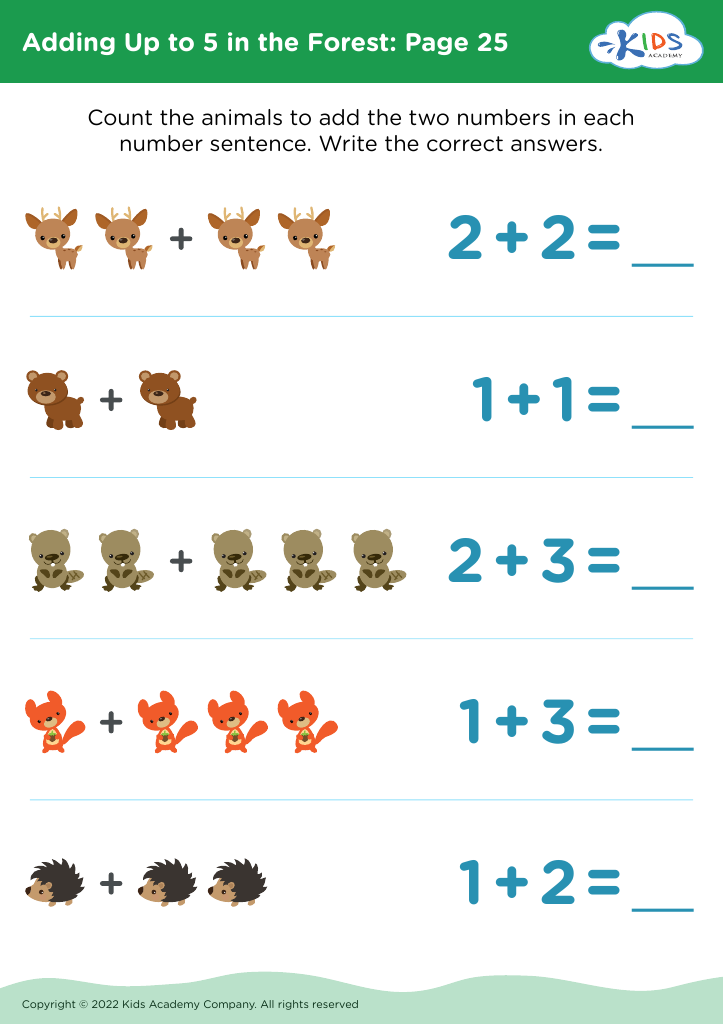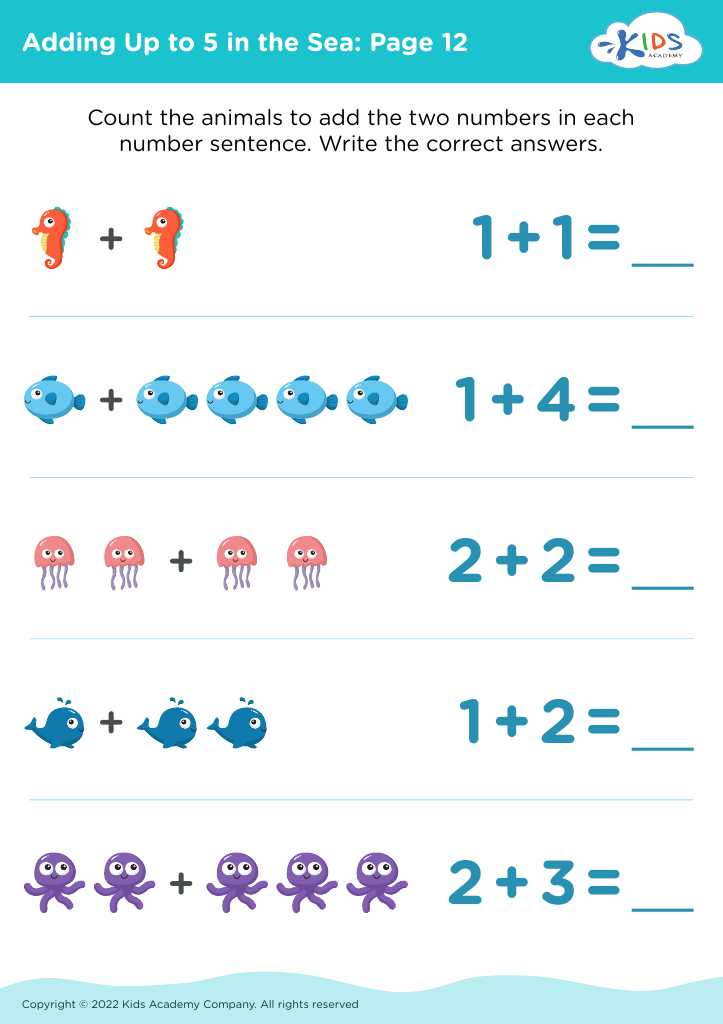Fine Motor Skills (coloring) Math Worksheets for Ages 3-4
4 filtered results
-
From - To
Introduce your little learner to the joy of math with our engaging Fine Motor Skills (coloring) Math Worksheets for ages 3-4. These expertly crafted worksheets are designed to develop crucial fine motor skills while combining coloring fun with basic math concepts. Ideal for preschoolers, these activities help enhance hand-eye coordination, color recognition, and number familiarity. Your child will delight in creative exercises that feature cute, vibrant pictures, making early math learning interactive and entertaining. Watch as they color their way to success, building foundational skills that pave the way for future academic achievements. Start their educational journey today!


Geometry Review Printable
Fine motor skills are crucial for young children, particularly those aged 3-4, as they lay the foundation for more complex tasks such as writing, buttoning clothes, and using utensils. Activities that integrate fine motor skills with math, like coloring math sheets, offer multifaceted benefits.
When young children color within boundaries and follow number-based color codes, they refine their hand-eye coordination and dexterity. These skills are important for writing and other academic pursuits. Coloring math provides an engaging way to enhance focus and attention to detail, essential for solving math problems later on.
Furthermore, blending math with activities they enjoy, such as coloring, makes learning math concepts like numbers and patterns more enjoyable and less intimidating. Children begin to see math as fun and approachable, fostering a positive attitude toward this critical subject.
Given that fine motor skill development is a gradual process, the earlier children start honing these abilities, the better prepared they will be for the structured learning environment of school. For teachers and parents, encouraging activities that combine fine motor skills with early math lays a strong foundation for both academic achievement and the everyday skills children will need as they grow.
 Assign to My Students
Assign to My Students
























